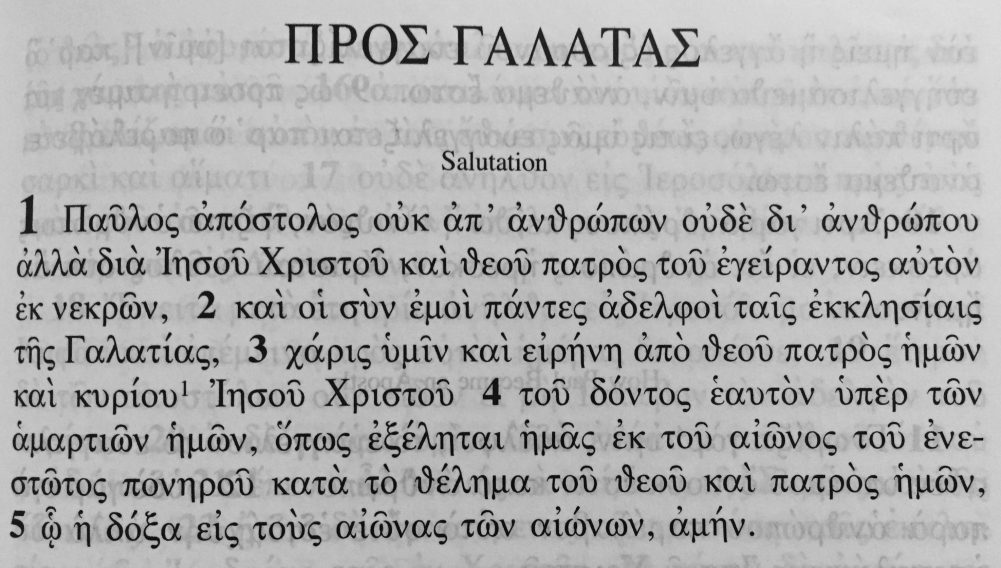“If it ain’t broke, don’t fix it.” Most of us are familiar with the saying, and the saying gets said for a reason: we love to tinker, and our tinkering often leaves things worse off than they were before. The gospel isn’t broken. It never has been and never will be. And yet in every age of the church, Christians and hypocrites alike have set to tinkering with it, whether purposefully or out of ignorance, whether with every good intention or with malice. The gospel is not ours, though. It is God’s, given to us, but not ours to tinker with. Things of God don’t break. Things of God are good, very good, and unchanging, like God Himself. They are sure and certain. They are reliable and always relevant, no matter what anyone says. And that is crucial. That is the reason that the Christian faith has chops. It has something to hold onto, something to bite into, something on which to rest.
We need to remember this, particularly in those times when it seems the gospel is not working (it is always working, but sometimes we expect or want different results with different timing than God has ordained). Why must we remember this particularly then? Because it is then that we in our pride (we don’t realize it’s pride at the time) think we need to help God along, improve the gospel a bit, or at least make it more palatable, dare I say, more marketable. Yet when we market the gospel all is lost, or nearly so. The gospel is not a product, but a proclamation, not a consumer good but a divine gift, not a bit of knowledge but the very presence and presentation of Jesus Christ Himself. It is not sold and sinners are not wooed to faith. No, they are killed by the law and made alive by the gospel, by the Spirit, through men, yes, but not by them. We dare not make the gospel appear any less than it is, dare not put it on the level of grocery store goods, ought not make it but one option among a veritable buffet of spiritual dishes. There is nothing more important than the gospel, the gospel in its truth and purity, the complete gospel, without the edges filed off, 100 proof, without its kick watered down. All our attempts to fix it, to tinker, will only in the end achieve the very opposite of that which we hope. It will not make more saints, but less; not less hypocrites, but more; not less sinners, but better, more religious sinners.
It’s all or nothing, first or last when it comes to the gospel of Jesus Christ, crucified for sinners, and that is why anyone who brings a gospel other than that delivered by St. Paul to the Galatians is to be accursed. This is serious business. This is the reason for the churches existence—not meetings, programs, picnics, placards, or any of the rest of the frosting on the cake—and without it the church dies, leaving behind a lodge or social club with a cross on the roof in its place. Without the gospel, people might feel uplifted when they leave church, but they will not leave justified, absolved, washed clean.
We are not cantankerous when we warn against error, therefore. We realize what is at stake: eternal life or death. No, not every error undoes the gospel, but no error is without logical consequences that assail and diminish the glorious redemptive work of Christ through which alone we are saved. All error, even the most hopeful, in the end robs us of hope. All error, even the most comforting, leaves us without consolation on our deathbed, if we think it through, if we don’t get back to the gospel as delivered to us by Christ and His prophets and apostles. Hold fast to Paul’s message, the message, then. Hold fast to Christ, who comes to you, gives Himself to you, makes you His own, through this message, so that, through it, and in Him, you may live freely and for your neighbor, not for salvation, which is a gift you’ve already been given.

